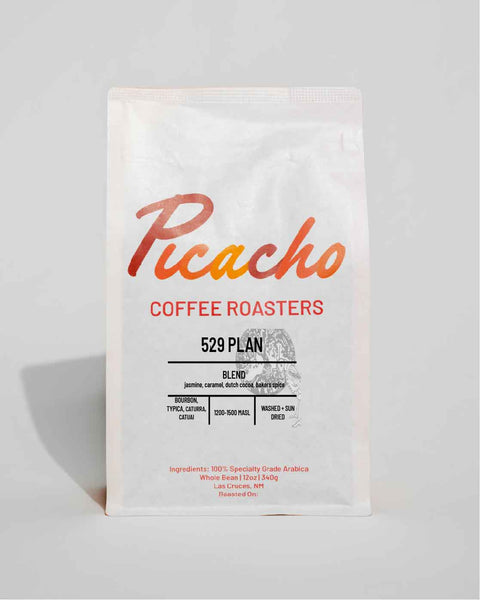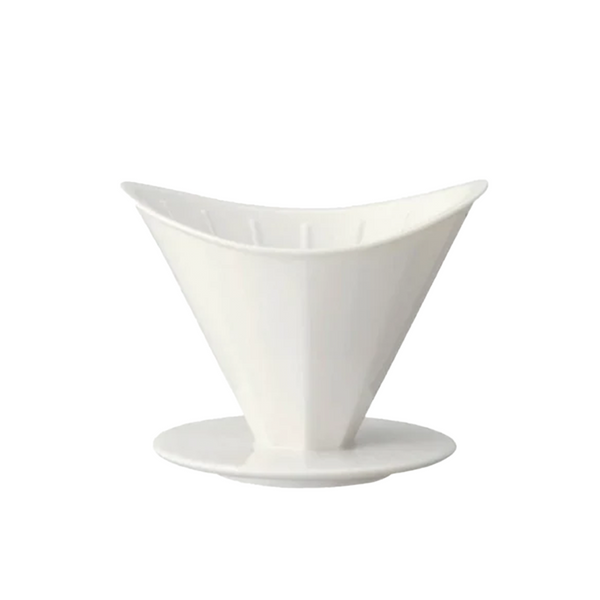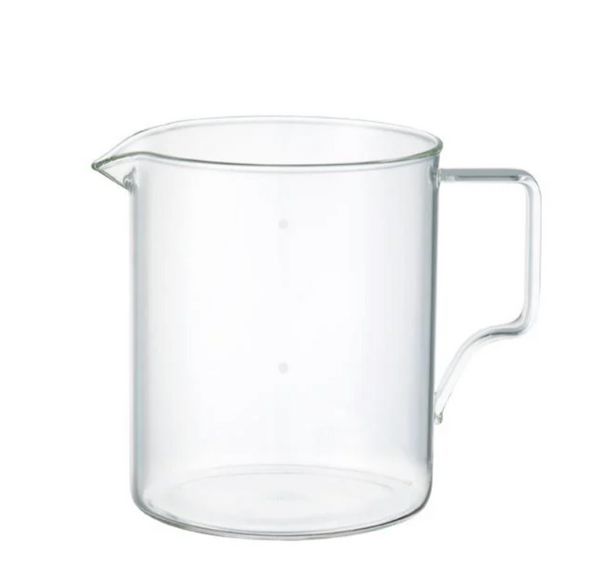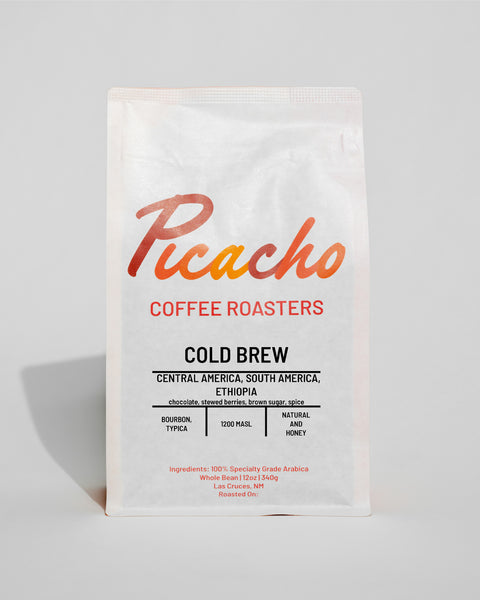Fugi Ikizere Women Rwanda
Picacho Coffee Roasters






Fuji Ikizere Women
Gakenke District
Northern Province, Rwanda
Single Origin Coffee
Notes: Peaches, Dried Apricot, Honey, Lavender, Gingerbread
Roast: Light (City+)
Varietal: 100% Red Bourbon
Elevation: 1700-200 MASL
Process: Washed
Contributing Farmers: 60 women farmers delivering to Fugi washing station
Kabea Sandrine, Mujawamariya Francine
Mukamuzima Costasie, Mukamurenzi Soline
Uwizeyimana Valida, Mukangenzi Xaverine
Ntawangaheza Epiphanie, Uwambajimana Theodosie
Sindikubwabo Vestine, Uwimana Josephine
Mukandemera Bernadette, Utarengejeho Christine
Baravuga Berancilla, Kabagwira Mariam
Mukamparirwa Verediane, Mukanyonga Angele
Nsaguye Venantie, Nyirantashya Speciose
Nyirarugwiro Drocelle, Nyandwi Christine
Mukamugema Alphonsine, Mukaremera Seraphine
Niyongere Marguerite, Mukakizima Venantie
Niyonizeye Veronique, Nyiraminani Cecile
Hategekimana Emerance, Mushimiyimana Dative
Bankundiye Fatma, Mukashyirangabo Providence
Dusingize Immaculee, Tegibanze Mariya
Nyirahabineza Jacqueline, Nyirahabimana Epiphanie
Ntakirutimana Donatha, Nyirabungurabwenge Christine
Dusabe Marie Grace, Mukakarangwa Donathille
Uwanyirigira Laurence, Mukeshimana Beatha
Mukamana Genevieve, Ntambabazi Appolinaire
Mukarubayiza Philomene, Mukangezahayo Philomene
Mukeshimana Florida, Mutagawa Venantie
Nyiransigiye Beatha, Nyiratabaro Odette
Nirora Donathe, Nyabyenda Beatha
Nsaguye Marie Goreth, Mukamugema Speciose
Uwitonze Clementine, Nyiransengima Valentine
Ahishakiye Clementine, Kwitegetse Costasie
Mukambuguje Clementine ,Uwimana M Claire
Mukakibibi Appolinarie, Nyiracumi Adidja
Mill: Fugi Station owned by Emmanuel Rusatira
Recommended Brew Ratios:
Espresso: 1:2 - 1:2.1 (17.5-18g in, 35-36.75 out, 25-30 seconds)
Filter: 1:15.2
Batch Brew: 1:16
FUJI STATION
Located in the Southern Province of Rwanda, Fugi is nestled between the Nyungwe National Forest and the border of Burundi. It quickly became established as a favorite of ours in the Baho network, producing consistently excellent washed, natural, and experimentally processed lots. In recent years, Fugi has transformed into what Emmanuel has called Baho’s hub for innovation - with now over 50% of Fugi’s production dedicated to honey, natural, and anaerobic style processing. Fugi has additionally served as homebase for numerous pilot projects - like the first women producer group, a parabolic drying structure, and a small composting facility producing organic fertilizers.
Fugi was built in 2013, but it was purchased by Emmanuel in 2016. Since then, he’s dedicated this station to solely producing specialty grade coffee. Fugi was Emmanuel’s very first station; and thus, it’s a key component of the foundation upon which Baho Coffee was built. It’s the third smallest station in the Baho collection, purchasing cherry from around 950 smallholder farmers and producing 900 bags of exportable green coffee each year.
As is standard practice for Baho-owned stations - training, inputs , and substantial contributions towards health insurance premiums are provided for all farmers delivering. Furthermore, each station has an agronomist on site that organizes training sessions focused on topics such as coffee plant care (planting, fertilizing, pruning, harvesting, etc), environmental protection, and importance of our traceability efforts. Various inputs like fertilizers and new coffee seedlings are provided free of cost to all farmers. Baho is involved a step further here as well - helping farmers with transportation to gather materials and lending tools/equipment when necessary
IKIZERE WOMEN
Meaning confidence in Kinyarwanda, Ikizere is Baho’s flagship initiative of more traceable lot separations. It’s a project that we’re incredibly thrilled to be able to support and offer to the North American market, now for the third consecutive season. The group is composed of widowed women and single mothers who share the unique challenges of navigating traditionally patriarchal systems - both the Rwandese society as a whole and more specifically coffee production. Through supporting the Ikizere project, we hope to aid in developing a stronger sense of community between the women and create a platform upon which their voices can be heard.
Over the past few years, we’ve seen the Ikizere project grow quickly from just around 20 growers at the Fugi station to now 100+ women with representation at each station that we’re purchasing from. Baho is heavily investing in support for this group via access to financial education, providing short term loans, and establishing clean water lines in specific communities. Emmanuel plays an active role here by arranging meetings each season to discuss their needs beyond coffee. Nonetheless, because of the success of the program, they’re all making significant improvements to their farms and investing in growing their operations. In addition to planting new coffee seedlings, many are strategically planting shade trees and using compost fertilizers as well.
In Emmanuel’s words:
Ikizere women coffee is composed by women of same identity (single mothers, head of families). The reasons to be single mothers are different but all people in this category face many social and economic challenges due to the traditional perceptions. We decided to bring these women together, through coffee, and revive their hope by showing them that we consider them as part of the community and they are equally needed , important, and valued like any other person, regardless of the struggle, social & economic situation. It is a group that started in 2020, now well organized and have their elected leadership to coordinate activities.
Recognition was one step, but we also want to advocate for them and sell their coffee to buyers who care about people, humanity, and equality. Coffee from these women was prepared with expectation when women used their hands to pulp cherries instead of using the machines. With income from this coffee, Baho promised these women to receive the highest price of cherries in the country, and through support from our buyers, will pay for their health insurance.
The relationship between Ikizere Women and BAHO Coffee Co. Ltd is based on humanity, social development activities and trying to change and improve living style of this group. We have so far started by training them about coffee growing, good agricultural practices, and coffee quality handling. It is a group with high level of understanding, commitment, and determination. We are developing them to make their group one of the well known women group for high coffee quality and model coffee farms. We are doing many activities with them such as training on coffee agronomy, social responsibility , access to finance with focus on saving groups, etc. We do pay them the highest cherry price every season and we make sure they are the happiest farmers not because they are women, not because they are single mothers responsible of families, but mainly because their high commitment to deliver quality coffee to our washing station. We pay them annually health insurance 100%, we give them short term loans for family development, we gave them clean drinking water line, and we have more many ideas collected from them and we will keep advocating and supporting to significantly change their lives.
PROCESSING
The initial steps for each process are the same: First, a day of intensive sorting at the cherry stage, under complete shade, to ensure only the ripest are chosen and any visible defects are removed. Step two is multiple rounds of floating - filling a large container with cherries and water, discarding the less dense cherries that float to the top of the tank. The densest coffees (sinkers) are reserved to be processed as the higher grade lots, and the less dense coffees (floaters) are mixed in with the rejected cherries from the initial sorting to be processed as lower grade lots. It’s expected that cherries are delivered to stations, on average, between 2 to 3 hours from picking.
This is where the Ikizere processing specifically get’s interesting! Though this is technically a washed process, an additional cherry fermentation step happens prior to depulping. Selected cherries are left to ferment, submerged in water, for 10 hours. After this time period, when the fruit has started to soften, the coffee is manually depulped by simply pressing on the cherries by hand to expel the seeds.
While depulping by hand may sound incredibly time consuming and difficult (it absolutely is), this is actually a traditional method of coffee processing in Rwanda. Prior to the development of washing stations, and even to some extent now, many producers would manually depulp their coffee and sell it in this wet state to intermediary buyers. This coffee would be marketed as semi washed, and often was of lower quality due to the poor processing procedures. We were admittedly a bit skeptical of the quality of these coffees when Emmanuel explained his plan to us. However, it was a very pleasant surprise to see that the rigorous quality control methods established within Fugi resulted in sparkling clean and delicious coffees.
After manual depulping, the parchment undergoes an 18 hour dry fermentation before moving to the grading channels. Here the coffee is rigorously washed to remove any remaining mucilage and separated by density - with the highest density lots being reserved for our selections. The coffee is then submerged underwater and soaked for a final 8 - 10 hour period; this step is thought to both assist in ensuring all mucilage is removed and also homogenize moisture throughout the seeds for a more even drying process.
The drying protocol begins by moving coffee onto shaded beds for 12 - 72 hours, which is a unique step in Rwanda that has two distinct benefits. First, it sets the trajectory for the entire drying phase by initially beginning very gently and slowly under complete shade. Secondly, it allows ample time for intensive sorting while the parchment is still wet - this is important because certain defects (seeds bitten by Antestia in particular, thought to cause the potato defect) can be seen much more easily when the parchment is wet.
The parchment is finally moved into full sun on raised drying beds, where it’s very frequently turned until drying is complete. Weather conditions are closely monitored throughout the day, and if certain temperature thresholds are exceeded, workers will focus on turning coffee more frequently or cover the beds with mesh netting. When moisture content reaches the target of 10.5 - 11.0%, the drying phase is considered complete. The parchment is bagged and stored in a dry warehouse at Muzo until time for milling. Total drying time for this lot was 45 days.





